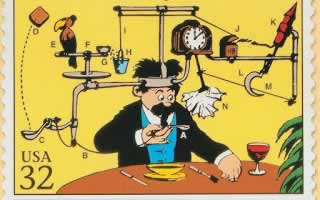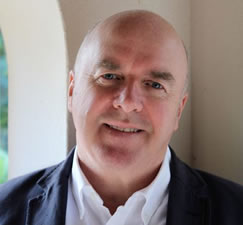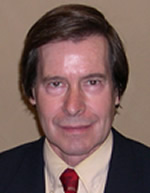In a major ruling that underscores judicial independence, federal judge Richard J. Leon has just unconditionally approved the merger between AT&T and Time Warner, rebuffing the US government's effort to stop the $85.4 billion deal.

Judge Leon made headlines during the trial when he questioned whether a key Justice Department theory, backed by a well-known testifying-expert economist, was a Rube Goldberg contraption: "a machine intentionally designed to perform a simple task in an indirect and over-complicated fashion." The UK equivalent of this is a Heath Robinson contraption: "any unnecessarily complex and implausible contrivance." The Dane Robert Strom Peterson was similarly creative with "comic drawings of machines that perform very simple tasks through an unnecessarily complex and usually humorous series of actions."
The judge was also quite damning in his written Decision:
Page 149: "After hearing Professor Shapiro's bargaining model described in open Court I wondered on the record whether its complexity made it seem like a Rube Goldberg contraption. Professor Carlton agreed at the trial that that was a fair description. But in fairness to Mr. Goldberg, at least his contraptions would normally move a pea from one side of a room to another. By contrast, the evidence at trial showed that Professor Shapiro's model lacks both 'reliability and factual credibility,' and thus fails to generate probative predictions of future harm associated with the Government's increased-leverage theory. Accordingly, neither Professor Shapiro's model, nor his testimony based upon it, provides me with an adequate basis to conclude that the challenged merger will lead to any raised costs on the part of distributors or consumers - much less consumer harms that outweigh the conceded $350 million in annual cost savings to AT&T customers." (citation omitted, emphasis already included)
Professor Shapiro's work on alleged patent holdup has similar failings, as I discussed, here (including my full analysis in a 12-page download), in August 2016, and as follows:
I came upon a paper entitled "Patent Holdup: Myth or Reality?" by Carl Shapiro, dated 6th October 2015, which was circulated as a hard-copy and presented at an IEEE-SIIT conference at the Intel-sponsored key-note address. In this, the author concedes that there are "few documented instances of actual holdups" and that they are "exceedingly difficult for researchers to detect and reliably quantify." He has backed off from his previous claims of prevalence of "patent holdup" where he stated "patentees regularly settle with companies in the information technology industries for far more money than their inventions are actually worth. These companies are paying holdup money to avoid the threat of infringement." Shapiro has retreated due to lack of empirical support for these original claims which is because portfolio licensing among many licensees on FRAND terms together with the courts ensure that holdup royalties are rarely demanded and are never paid. However, Shapiro takes another position where there is also no supporting evidence. He now claims that the social costs caused by the alleged "patent holdup" problem are in the actions taken to prevent holdup and in the opportunities forgone under the threat of "patent holdup." (emphasis added)
It is reassuring that even well-known and widely-cited economists are expected support their opinions with facts when testifying in court. Royalty-stacking theory peddlers should also beware because they are likewise devoid of supporting evidence while there is copious evidence and solid economic analysis to the contrary.
Government agencies pursuing policy objectives must be more diligent in their deliberations. Academics and other experts should also be more principled when publishing academic articles and giving speeches. As I recently wrote in another publication on the question of "Economists: Do They Have a Place?" following a conference panel speech on the topic:
Economists need to take responsibility for what their own economic analysis relies upon. We need economists to publish, and as expert witnesses, but we need to flush out inapplicable theories, biases, and nonsense with more empirical testing, public debate including academic peer review, and rebuttal in litigation according to the applicable rules of evidence.
Keith Mallinson has more than 25 years of experience in the Telecommunications Industry: as a research analyst, consultant and testifying expert witness. Complementing his industry focus, he has a broad skill set including technologies, market analysis, regulation, economics and finance. Prior to founding WiseHarbor in 2006, Mallinson led Yankee Group's global Wireless/Mobile research and consulting team as Executive Vice President, based in Boston, from 2000. Until then, he had overall responsibility for the firm's European division, as Managing Director from 1995. Prior to that he was the European Research Director.
©Copyright - All Rights Reserved
DO NOT REPRODUCE WITHOUT WRITTEN PERMISSION BY AUTHOR.











